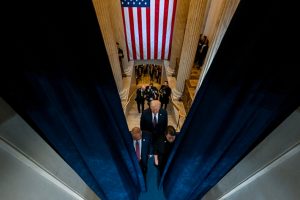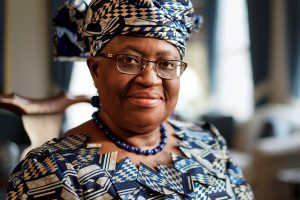China intensified its crackdown on cryptocurrency trading on Friday, with the People’s Bank of China saying all crypto transactions are illegal and vowing to root out such activity and ban crypto mining nationwide.
The news hitting Bitcoin and other major coins and pressured crypto and blockchain-related stocks.
The central bank was one of 10 Chinese government agencies, along with banking, securities and foreign exchange regulators, who said in a joint statement that they would work closely to maintain a “high-pressure” clampdown on cryptocurrency trading.
The PBoC said cryptocurrencies must not circulate in markets as traditional currencies and that overseas exchanges are barred from providing services to mainland investors via the internet.
It also barred financial institutions, payment companies and internet firms from facilitating cryptocurrency trading.
The moves come after China’s State Council, or cabinet, vowed in May to crack down on bitcoin mining and trading as part of efforts to fend off financial risk, sparking a major sell-off of cryptocurrencies.
The Chinese government will “resolutely clamp down on virtual currency speculation, and related financial activities and misbehaviour in order to safeguard people’s properties and maintain economic, financial and social order,” the PBoC said in a statement on its website.
BITCOIN DOWN 6%
In response to the latest move, Bitcoin, the world’s largest cryptocurrency, dropped over 6% to $42,2167, having earlier been down about 1%.
Smaller coins, which typically rise and fall in tandem with Bitcoin, also tumbled. Ether fell 10% while XRP a similar amount.
“There’s a degree of panic in the air,” Joseph Edwards, head of research at cryptocurrency broker Enigma Securities in London, said. “Crypto continues to exist in a grey area of legality across the board in China.”
The move also hit cryptocurrency and blockchain-related shares.
US-listed miners Riot Blockchain, Marathon Digital and Bit Digital fell between 6.3% and 7.5% in premarket trading. China-focused SOS dropped 6.1% while San Francisco crypto exchange Coinbase Global fell 3.4%.
“THOROUGH CLEANUP”
The National Development and Reform Commission (NDRC) said it was launching a thorough, nationwide cleanup of cryptocurrency mining. Such activities contribute little to China’s economic growth, spawn risks, consume a huge amount of energy and hamper carbon neutrality goals, it said.
It is “imperative” to wipe out cryptocurrency mining, and promote high-quality growth for China’s economy, the NDRC said in a notice to local governments.
Virtual currency mining had been a big business in China before the crackdown earlier this year, accounting for more than half of the world’s crypto supply.
The NDRC said it will work closely with other state agencies to make sure financial support and electricity will be cut off for mining. The national planning body also urged local governments to come up with a specific timetable and road map to eradicate such activities.
Previous restrictions, issued by local governments, paralysed the industry as miners dumped machines in despair or sought refuge in places such as Texas or Kazakhstan.
However, Laos, its small southern neighbour, appears to want to cash in on crypto miners who have to leave China. Authorities in Vientiane granted licences to six companies to mine and trade cryptos earlier this month.
• Jim Pollard and Reuters.
























